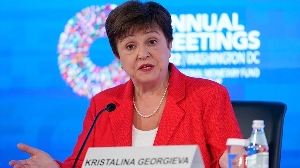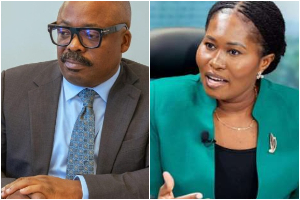The Africa Centre for Energy Policy (ACEP) has called on the International Monetary Fund (IMF) to adopt punitive sanctions to ensure that its member countries strictly implement guidance notes on the utilisation of its Special Drawing Rights (SDR) given to countries in times of crisis.
ACEP again recommended that for developing countries such as Ghana without robust structures, future SDRs should come with requirements such as fiscal and debt sustainability frameworks to ensure compliance.
Initial findings from an analysis conducted by the Africa Centre for Energy Policy (ACEP) on the utilisation of Ghana’s share of 707.3 million (equivalent to US$1 billion) SDR received from the IMF in 2021 show that contrary to general expectations that the utilisation of the funds will boost the macroeconomic stability of Ghana, the situation rather deteriorated in 2022.
According to ACEP, the over $930 million which represents over ninety percent (90%) utilisation of the SDR receipts by government as at May 2022, shows that Ghana does not have much to show for what it described as ‘free money’ it receives from the IMF.
The report highlighted the poor utilisation of the SDR as a result of the general lack of IMF visibility on such general SDRs allocations. This report pointed out that it alienates civic monitoring and undermines accountability, thereby creating an incentive for abuse.
The Head, Monitoring and Evaluation/Senior Policy Analyst at ACEP, Mabel Acquaye, made these remarks during an engagement with members of the Parliamentary Press Corps (PPC) on Ghana’s IMF SDR Allocation Utilisation held on Monday, April 22, 2024, at its head office in Accra.
She blamed government for not adopting a well-defined fiscal structural framework to ensure fiscal prudence and responsibility in guarding how the SDR was spent.
Mrs. Acquaye has therefore challenged Civil Society organisations (CSOs) and the media to develop interest in how such windfalls are expended.
Additionally, ACEP calls on government to exercise prudent fiscal management by prioritising and aligning expenses with available resources.
It urged the country to pay particular attention to such windfalls by re-aligning expenditure and not to see it an opportunity to spend.
Background
Ghana, like any other member country of the IMF, benefited from the unconditional windfall to be expended in the economic recovery efforts from the devastating impacts of COVID-19.
Despite the absence of strict restrictions, the Fund provided some guidance notes to aid beneficiary countries in the utilisation of their benefits as they implement macroeconomic measures to recover from the shocks of the COVID-19 pandemic and return to the path of growth.
The Ghanaian government announced it was going to use its share of the SDR for budget expenditure support through the Ghc100 billion Ghana CARES Obatanpa post-COVID-19 recovery Programme.
Out of the total SDR allocation, the country decided to access the first tranche of over $300 million in December 2021 to support the fiscal deficit of the budget.
Ghana again took delivery of the second tranche of over $600 million in May 2022, totalling over $930 million.
However, an initial report of analysis conducted by ACEP into the over $930 million, which represents over ninety percent (90%) utilisation of the SDR receipts by government as at May 2022, shows that Ghana does not have much to show for the ‘free money’ it receives from the IMF.
Ghana started applying its SDR to budget financing in December 2021 without the necessary debt management measures that could have helped it achieve macroeconomic sustainability.
Instead of applying the recommended measures in late 2021 or early 2022, government failed and also did not adjust its preannounced initiatives considering the prevailing circumstances at the time.
The report agreed with government’s decision to utilise the first tranche of the SDR amounting to a little over $300 million to support the budget, as signs of recovery were obvious in 2021 with generally improving macroeconomic indicators as growth rate improved, exchange rate stabilised at 4.5% by the close of that same year, and stable inflation.
However, instead of government realigning the second tranche of the SDR to support countercyclical monetary policy due the depreciating cedi and increasing exchange rates, among others at the time, in accordance with the recommendation of the IMF guidance note, Ghana again applied it to pre-announced purpose of budgetary financing, and as a result, Ghana’s economy did not witness any meaningful recoveries despite the utilisations but instead deteriorated.
This, according to ACEP, is because the country was not expecting the SDR at the time; hence, the existence of strict restriction framework would have ensured prudence in the SDR expenditure.
Business News of Friday, 26 April 2024
Source: gbcghanaonline.com













